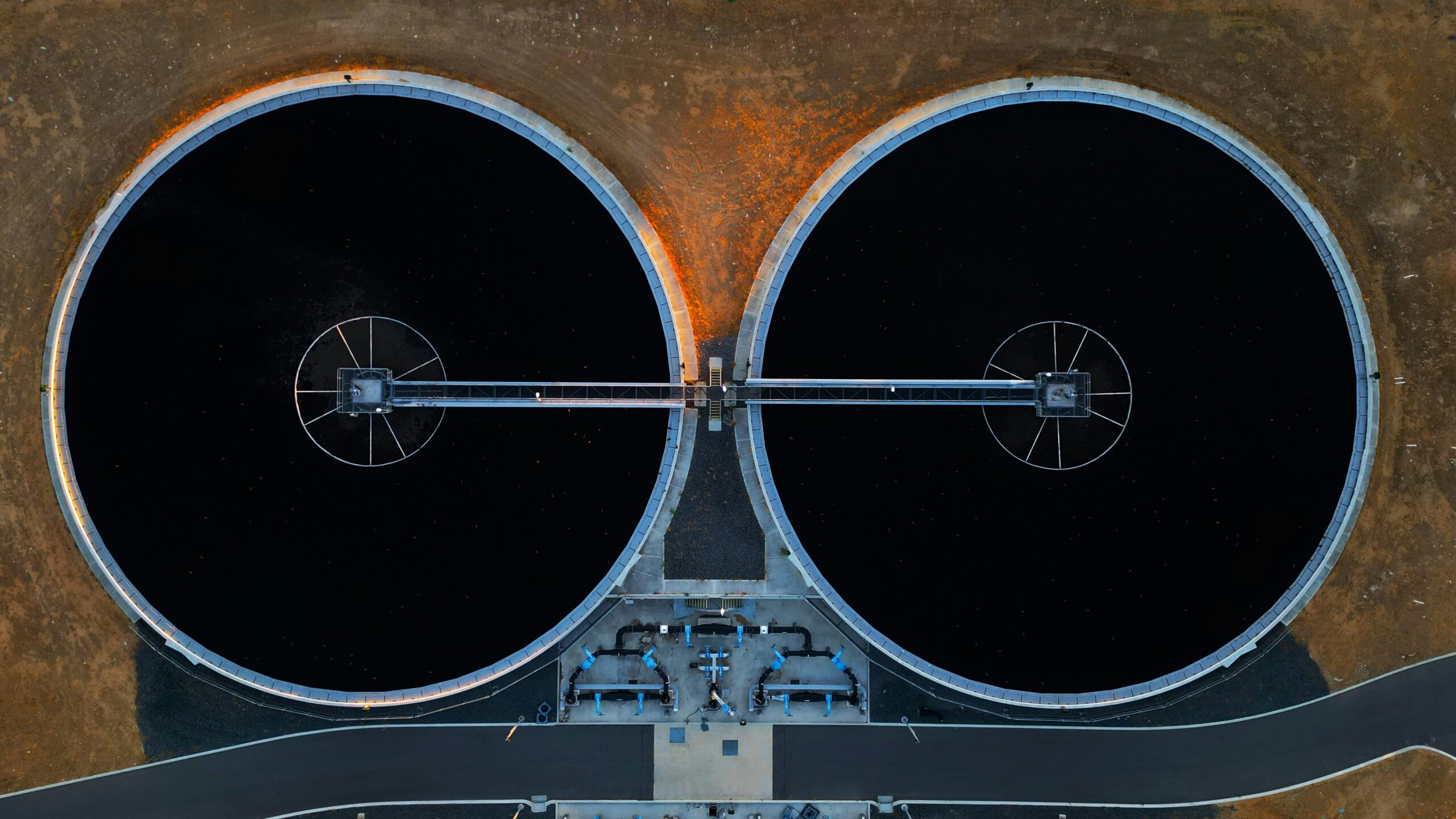 Image description: aerial shot of a water treatment plant. Photo by Ian on Unsplash
Image description: aerial shot of a water treatment plant. Photo by Ian on Unsplash
Financial regulator Ofwat, in response to a freedom of information request by Save Windermere campaigning group, revealed United Utilities had been allocated £129m since 2000 to connect non-mains systems, mostly septic tanks, to the mains sewer network and reduce sewage pollution.
However, the privatised company has spent just £76.7m in almost 25 years, meaning £52m has been left unspent
Treated and untreated sewage discharges from United Utilities facilities represent the principal source of phosphorous pollution into Windermere. The first comprehensive analysis of water quality in England’s largest lake revealed bathing water quality across most of the lake was poor throughout the summer owing to high levels of sewage pollution. As well as pollution from water company assets, sewage pollution is known to enter the lake from private septic tanks. The water company attributes 30% of phosphorus loading in the lake to non-mains drainage.
Save Windermere has mapped areas where private sewerage systems are likely to be significantly affecting the water quality. These include areas around the south basin of Windermere, where more than 5 miles of shoreline relies entirely on non-mains.
United Utilies response
United Utilities reportedly said it could not force property owners to sign up to the main network, but that it was involved in community outreach to encourage businesses and individuals to do so.
Under section 101 (a) of the 1991 Water Industry Act, property owners can request a connection to the public sewer system if an existing private sewerage system – serving two or more premises or a locality – is causing, or is likely to cause, environmental or amenity problems.
Matt Staniek, the founder and director of Save Windermere, said only one scheme had been completed in the Windermere catchment in two decades, which connected only 27 properties to the mains. He believes “there should have been far more effort to inform local communities about their right to request a mains connection” and is calling on the water company to produce a high-profile campaign to connect the septic tank properties to the mains.
United Utilites says they “are currently working with communities in three areas in the catchment to drum up the necessary interest.”
United Utilities turning toilet paper into sugar
In a separate story, United Utilities has said it was undertaking the “ground-breaking” trials extracting sugar from toilet paper flushed down the loo at its Blackburn sewage works.
The water company said the naturally occurring glucose could be turned into biofuels, bioplastics and detergents, through a process called “Cellvation” developed in the Netherlands.
It sees toilet paper filtered and compacted before enzymes and chemicals are added to kickstart the digestion process. The mixture is then heated for two days to allow the cellulose material to break down and transform into glucose.
Lisa Mansell, UU’s chief engineer for innovation and carbon, said with more than 200,000 people’s toilets emptying into the sewage works, there was plenty of toilet paper to work with, and this process “has potential to deliver significant carbon reduction benefits for the water sector and many other industries in the UK”. United Utilities also said people could be assured the sewage sugar was for industrial use only, and was not destined for the food chain.